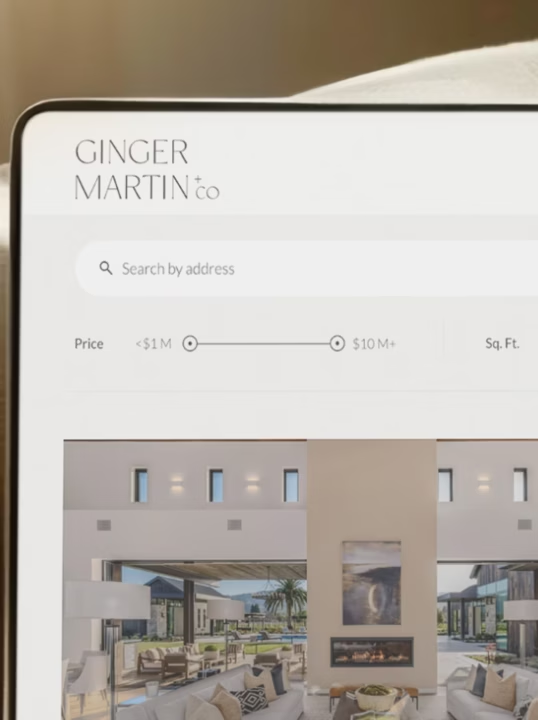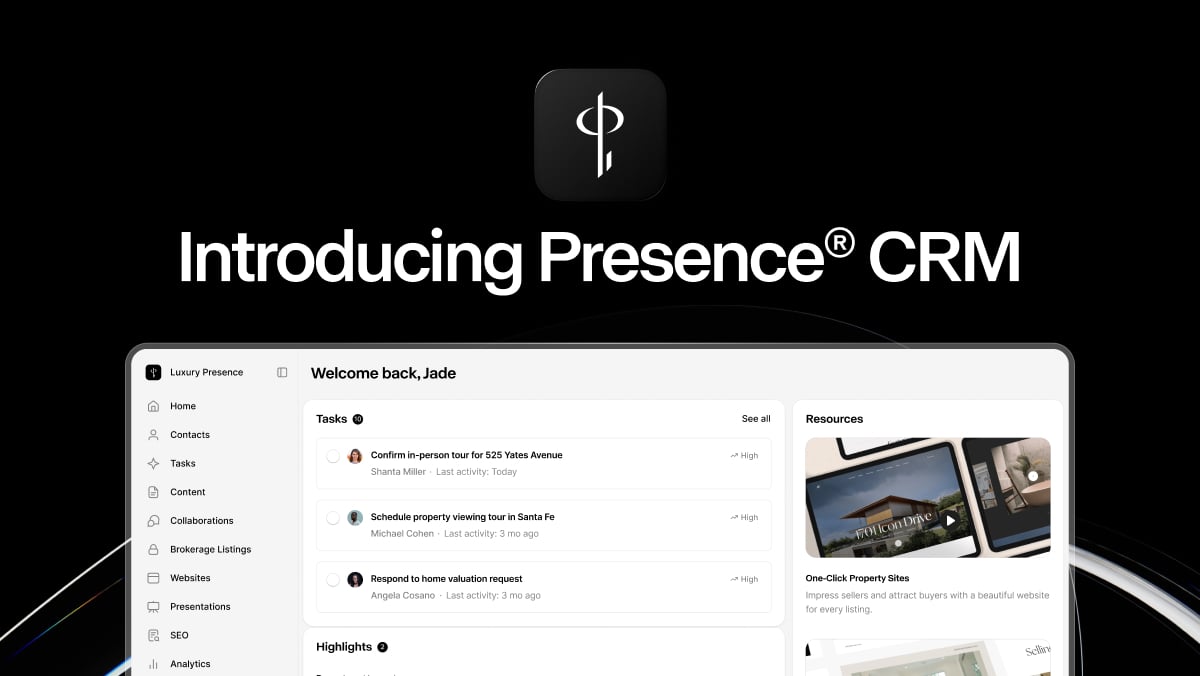
The housing market continues to evolve, shaped by shifting mortgage rates, inventory constraints, and increased buyer expectations. In this environment, real estate professionals benefit from clear, data-informed guidance. Real estate market reports offer an essential foundation for delivering that clarity. These reports help agents strengthen client relationships, inform listing strategies, and produce content that drives business growth.
This article outlines how market reports contribute to performance, what they should include, how to create and distribute them effectively, and how top-producing agents use AI to streamline their reporting workflow.
Find It Fast
Real estate professionals rely on data to guide client decisions
Clients expect accurate and timely information when making property decisions. Real estate market reports provide metrics such as median home prices, inventory trends, absorption rates, and days on market. These figures support agents in presenting a comprehensive picture of market activity, which contributes to better-aligned client expectations and smoother transactions.
A well-structured report provides relevant figures and local context. When shared with clients, this information reinforces an agent’s knowledge of the market and supports strategic decision-making. Reports help agents recommend pricing with supporting evidence, explain shifting trends, and identify timing opportunities.
This level of insight helps maintain long-term relationships with clients and expands professional networks. By offering regular updates, agents remain top-of-mind and available when clients are ready to transact.
Market reports are effective content and lead-generation tools
Real estate market reports also serve as the basis for compelling marketing content. Agents use monthly or quarterly reports in blog posts, newsletters, videos, and gated downloads (or lead magnets) to attract and engage leads.
Luxury Presence clients generated more than 100 million website visitors in 2024. Nearly 500,000 leads were captured through tools such as home search modules, valuation forms, and Google One Tap integrations. These results reflect the effectiveness of delivering high-value information in a structured, repeatable format. Reports also support SEO and email campaign performance, improving both visibility and conversion rates.
Localized reporting increases client engagement
Clients seek information relevant to their specific neighborhood or market segment. Reports that address smaller geographies, such as school zones, subdivisions, or city districts, deliver the most impact.
Using templates and automation, agents can schedule area-specific updates that are delivered by email or through client portals. This approach ensures consistent communication while allowing for customization at scale.
How to structure and distribute effective market reports
Market reports are one of the most effective tools agents can use to demonstrate expertise, build trust, and drive engagement. When structured clearly and distributed strategically, they can convert casual interest into active conversations and help past clients re-enter the market with confidence.
To create a report that delivers real value, focus on the following key elements:
Key elements to include:
- Location: Define the area precisely (e.g., by zip code or MLS zone).
- Price trends: Show changes in median and average prices.
- Inventory: Highlight active listings, new listings, and absorption rate.
- Time on market: Share current averages and shifts over time.
- Sales-to-list ratio: Indicate how close properties are selling to their asking prices.
- Narrative insight: Offer a summary explaining what the data suggests for buyers or sellers.
Distribution timing and segmentation:
- Monthly updates work well for active buyers, sellers, and leads in fast-moving markets.
- Quarterly reports are appropriate for general audiences and client databases.
- Target segments with custom content:
- Sellers: Emphasize competitive pricing and buyer demand.
- Buyers: Focus on inventory growth and negotiation leverage.
- Past clients: Share appreciation trends to re-engage interest.
Delivery formats:
- Email newsletters with PDF attachments
- Interactive report landing pages
- Social media posts linking to detailed insights
- Personalized one-page summaries for listing presentations
Adding a client psychology layer to market reports
The numbers in a market report are essential, but they’re only half the story. Clients don’t just process data logically, they experience it emotionally. The most impactful reports connect metrics to the emotional journey of buyers, sellers, and investors, helping them feel confident and motivated to act.
Reduce Uncertainty
For many clients, real estate decisions feel risky. A well-structured market report reduces uncertainty by showing clear trends in pricing, inventory, and time on market. Buyers gain confidence that they’re entering at the right time, while sellers feel reassured that they’re pricing strategically.
Support Negotiation Leverage
Market reports also serve as negotiation tools. Buyers can reference data showing longer days on market to justify stronger offers, while sellers can lean on low-inventory trends to stand firm on asking prices. By positioning clients with evidence-backed leverage, you elevate their confidence in the transaction process.
Show Long-Term Wealth Growth
For investors and high-net-worth clients, reports are a way to demonstrate wealth-building potential. Highlighting year-over-year appreciation, ROI trends, and rental yield projections shows clients that their investment isn’t just about the present transaction, it’s about long-term financial growth.
Market reports support lead nurturing efforts
Agents who deliver consistent insights maintain higher engagement. By integrating real estate market reports into a lead nurture sequence, agents remain visible and relevant throughout the client lifecycle.
Examples of useful subject lines for email campaigns:
- “Your Neighborhood Market Update for Q2”
- “Median Prices in Scottsdale Just Shifted — Here’s What to Know”
- “Are Homes Still Selling Quickly in 90210?”
Phone follow-ups that reference report data can also improve conversion:
Hi, I noticed you downloaded our Pasadena Market Report last month. Based on the new numbers, inventory has dropped 14 percent. I’d be happy to walk you through what that means if you’re still exploring options.
Investor and luxury market reports
Not all clients view the housing market the same way. Investors, luxury buyers, and high-net-worth sellers often expect more advanced insights than the average homeowner. Incorporating these specialized data points into your reports helps you stand out as a trusted advisor to niche audiences.
Investor-Focused Reports
For investor clients, go beyond standard pricing and inventory metrics. Include figures such as:
- Rental yield and cap rates (to assess income potential).
- Absorption rates by property type (condos, multifamily, single-family).
- Year-over-year appreciation trends (to project long-term value).
- Cash flow projections for buy-and-hold opportunities.
These insights allow investors to make quick, evidence-based decisions — and they reinforce your ability to speak their language.
Luxury Market Reports
Luxury buyers and sellers expect a different lens. Instead of focusing solely on affordability, highlight:
- Price per square foot trends for high-end homes.
- Lifestyle-driven data, such as waterfront, gated, or golf course communities.
- Days on market for properties above a certain threshold (e.g., $2M+).
- Neighborhood prestige metrics, such as architectural styles or school ratings.
By tailoring market reports to the priorities of these segments, you’ll provide a more compelling and relevant perspective that builds credibility with discerning clients.
How to use AI to create reports quickly and effectively
AI tools help agents produce polished, accurate reports in less time. With the right inputs, AI can generate market summaries, social media posts, and lead-nurture content using real data.
Required inputs:
- MLS export (CSV or Excel format) for the last 30–90 days
- Location and area name
- Reporting timeframe (monthly, quarterly, annual)
- Key figures to highlight (e.g., price changes, time on market)
Example prompt for AI:
Generate a real estate market summary for San Mateo County for May 2025 using the uploaded MLS data. Include trends for median sales price, inventory, days on market, and a summary paragraph with insights for buyers and sellers.
Agents can also use AI to:
- Create multiple versions of a report tailored to different audiences
- Summarize report content for social captions or email intros
- Generate visual layout suggestions for publishing
This workflow reduces manual writing time and enables more consistent publishing across marketing channels.
How AI Search will change market reports
Just as AI is transforming keyword research, it’s also reshaping how people search for and consume market information. Traditional reports focus on static numbers, but AI-driven search engines are surfacing answers to complex, conversational questions like:
- “Is it a good time to sell a home in Santa Monica?”
- “What neighborhoods in Austin saw the biggest price gains this year?”
- “What does the luxury condo market in Miami look like right now?”
To remain discoverable in this new environment, your market reports should anticipate these queries and provide clear, conversational answers alongside the raw data. That means:
- Structuring sections as question-and-answer modules (e.g., “How long are homes taking to sell in [city] right now?”).
- Writing narrative insights that summarize what the numbers mean for buyers, sellers, or investors.
- Including localized, natural-language phrasing so your content matches how clients actually ask questions in AI-driven platforms.
This approach ensures that your market reports are not just useful to clients but also optimized for the AI-first search landscape.
Market reports contribute to long-term growth
Market reports improve client communication, support strategic decisions, and expand brand visibility. When used consistently, they help agents attract leads, retain clients, and close more transactions.
Luxury Presence provides the infrastructure for delivering these reports at scale. With tools for branded design, CRM integration, and intelligent automation, agents can offer data-informed value across every stage of the client journey. Partner with Luxury Presence and connect with the tools trusted by the nation’s top producers.
Get the platform that drives results.
Agents using Luxury Presence grew sales nearly 2x faster than their peers, increased sold listings by 6%, and closed over $300B in transactions. Ready to grow your business? Let us show you how.



